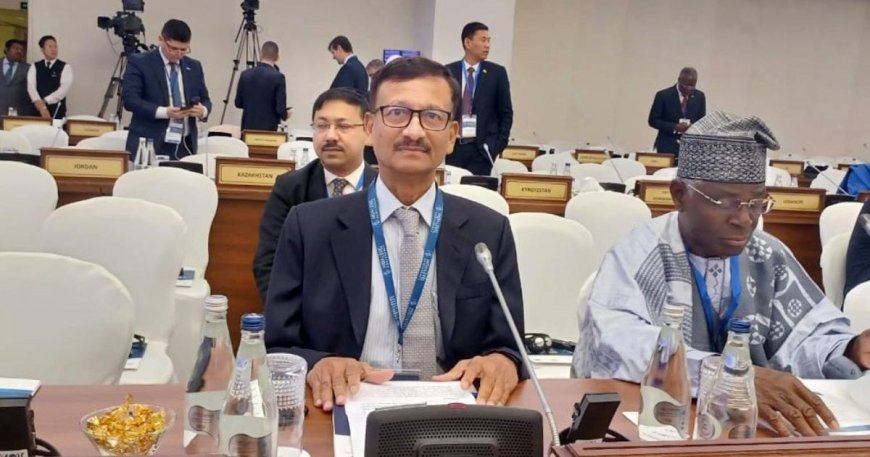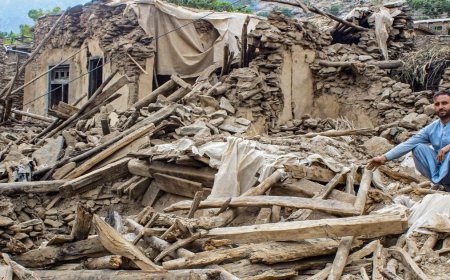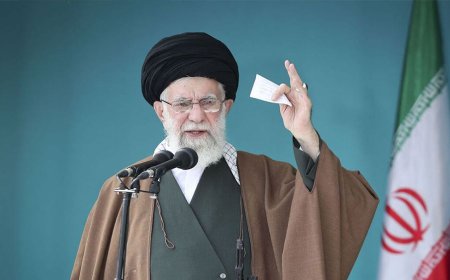The EU expresses concern over the ICT's legal framework and is calling for reforms
Everyone has the right to live free from violence, harassment, and discrimination

The European Union (EU) has emphasized the need to ensure due process at all stages of legal proceedings, expressing "concern" over the International Crimes Tribunal's (ICT) legal framework, which it suggests should be revised promptly to align with international human rights standards.
In a recent discussion, the EU and Bangladesh acknowledged the significance of transitional justice, honoring the victims and survivors of the July-August violent crackdown on protestors as well as previous human rights abuses. Both sides underscored the importance of holding human rights violators accountable.
They also agreed on addressing human rights issues affecting women, children, minorities, and marginalized groups. The EU emphasized that everyone deserves to live free from violence, harassment, and discrimination, and stressed that law and order "should be ensured" for all, especially for the most vulnerable.
The interim government reiterated its condemnation of all forms of violence and expressed its desire for a violence-free environment.
This dialogue took place during the 11th meeting of the sub-group on good governance and human rights within the EU-Bangladesh Joint Commission, held recently in Dhaka as part of the EU-Bangladesh Cooperation Agreement. The sub-group was co-chaired by Mohammad Mohiuddin, head of the Legislative and Parliamentary Affairs Division of Bangladesh’s Ministry of Law, and Rensje Teerink, head of the EU’s Division for South Asia at the European External Action Service (EEAS). Observers from EU Member State embassies in Dhaka also attended the meeting.
Reporting back to the Bangladesh-EU Joint Commission, the sub-group covered all areas of bilateral cooperation. Following the meeting, Paola Pampaloni, Deputy Managing Director of the Asia Pacific Department at the EEAS, expressed satisfaction, stating, “Very happy to be back in Dhaka to co-chair the 11th EU-Bangladesh Joint Commission. We reviewed the wide range of cooperation during these transitional times.”
EU representatives expressed support for an "inclusive" democratic transition, and the EU and Bangladesh reiterated their shared commitment to strengthen cooperation on human rights, governance, and the interim government’s reform agenda. They recognized Bangladesh’s political transition as an "unprecedented opportunity" to advance human rights and good governance.
The EU paid tribute to the resilience of students and citizens who defended their rights, recalling those who lost their lives during the July-August uprising. The EU welcomed the interim government’s "strong commitment" to pursue reforms and build a "democratic, pluralistic, and inclusive" Bangladesh grounded in human rights and the rule of law.
This commitment is reflected in Bangladesh’s ratification of the International Convention for the Protection of All Persons from Enforced Disappearance (ICPPED) and in the establishment of a Commission of Inquiry on enforced disappearances. The EU noted recent pledges to amend restrictive laws, including the Cyber Security Act, as further evidence of this commitment.
Bangladesh provided updates on its structural reform process, including through newly established reform commissions. The EU expressed appreciation for the work of these commissions, emphasizing the need to consider the perspectives of all population groups, including women and minorities. They also discussed the importance of transparency and consultation in decision-making based on commission reports.
Several reform areas, including justice, public administration, security, and legislative capacity building, were addressed. Building on the EU’s longstanding partnership with Bangladesh on labor rights, both parties agreed on the urgent need for progress, particularly by enhancing labor inspections.
The EU reminded Bangladesh that preferential access for Bangladeshi exports to Europe is contingent upon upholding international human rights and labor standards. The EU also highlighted newly adopted EU legislation to reinforce human rights, labor protections, and environmental sustainability across European supply chains, including those involving Bangladeshi products.
Both sides acknowledged the need for comprehensive electoral reforms, with the EU recommending the January 2024 EU Election Expert Mission’s findings as a “useful guide” for restoring public trust in Bangladesh’s electoral process and meeting international election standards.
The EU expressed appreciation for Bangladesh’s temporary shelter of 1.2 million forcibly displaced Rohingya refugees. They discussed steps to best meet the needs of Rohingya and host communities and considered options for their voluntary, safe, dignified, and sustainable return. Both parties shared serious concerns over ongoing violence in Rakhine, affecting repatriation efforts.
The EU encouraged Bangladesh to deepen cooperation with the Office of the High Commissioner for Human Rights (OHCHR) and extend a standing invitation to UN Special Procedures, given the country’s ongoing political transition. Bangladesh affirmed that protecting citizens’ human rights is a top priority of the interim government, which is closely working with OHCHR.
At the interim government’s invitation, the UN has begun an independent fact-finding mission on human rights violations during the July-August student-led mass movement. Bangladesh assured that the interim government would carefully consider the mission’s recommendations.
Both parties expressed hope that, with Bangladesh’s renewed commitment to human rights and democracy, cooperation and alignment in international human rights forums would strengthen.
What's Your Reaction?





















































































